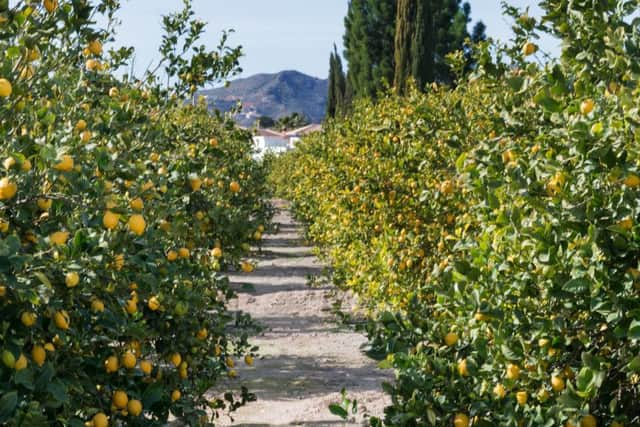QUB researchers find mafia's rise to power down to ... lemons


However, a team of researchers at Queen’s University Belfast has contended that the booming citrus industry in the late 19th century is responsible for the rise of the Sicilian mafia.
Arguably one of the most infamous institutions in the Western world, the mafia first appeared in Sicily in the 1870s and soon infiltrated the economic and political spheres of Italy and the United States.
Advertisement
Hide AdAdvertisement
Hide AdAround the same time, the global demand for lemons and oranges exploded following the discovery by James Lind, a British Navy surgeon, that citrus fruits could prevent and cure scurvy, due to their high levels of vitamin C.


Now, researchers from Queen’s – in collaboration with the University of Manchester and the University of Gothenburg – have uncovered new evidence which suggests that the mafia’s rise to notoriety was inextricably tied to the huge public demand for citrus fruits exported from Sicily.
Dr Arcangelo Dimico, lecturer in economics from Queen’s Management School, said: “Although outcomes of the mafia’s actions such as murders, bombings, and embezzlement of public money have been observed during the last 140 years, the reasons behind its emergence are still obscure.”
The researchers used two unique data sets from Sicilian towns and districts gathered from a parliamentary inquiry conducted between 1881-1886 (Damiani 1886) and from 1900 (Cutrera 1900).
Advertisement
Hide AdAdvertisement
Hide AdThey found that mafia presence in the 1880s is strongly associated with the prevalence of citrus cultivation.


Dr Dimico added: “Given Sicily’s dominant position in the international market for citrus fruits, the increase in demand resulted in a very large inflow of revenues to citrus-producing towns during the 1800s.
“Citrus trees can be cultivated only in areas that meet specific requirements, such as mild and constant temperature throughout the year and abundance of water, guaranteeing substantial profits to relatively few local producers.
“The combination of high profits, a weak rule of law, a low level of inter-personal trust, and a high level of local poverty made lemon producers a suitable target for predation, as there was little means to effectively enforce private property rights.
Advertisement
Hide AdAdvertisement
Hide Ad“Lemon producers, therefore, resorted to hiring mafia affiliates for private protection and to act as intermediaries between the retailers and exporters in the harbours.”
The findings have been published in the Journal of Economic History.